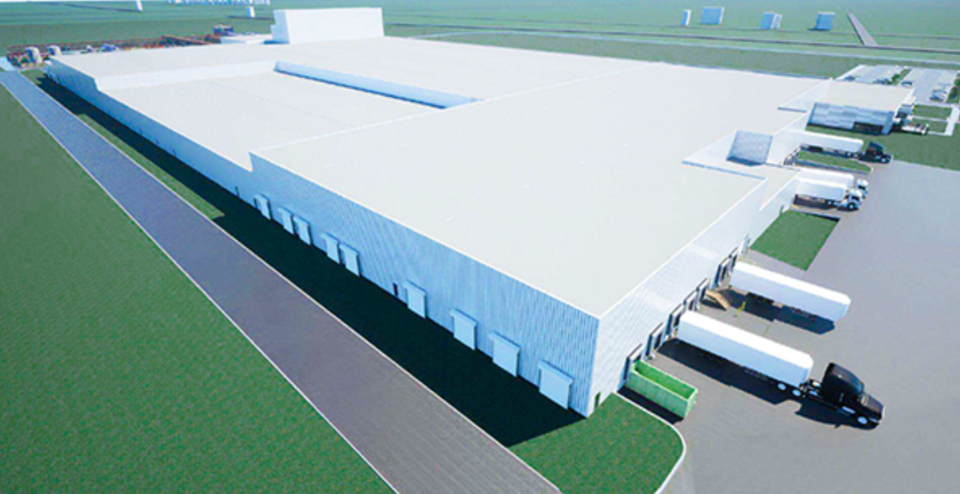Well-known Northern Ontario brownfield property developers, the Veldman brothers of the BMI Group, are declaring a “strategic win” in landing a lithium-ion battery separator plant at one of their properties in Port Colborne in the Niagara peninsula.
Tokyo-based Asahi Kasei is investing $1.6 billion in the facility. A May 14 news conference was attended by Prime Minister Justin Trudeau and Ontario Premier Doug Ford. No number was provided by the dignitaries on hand on the number of jobs to be created.
Construction of the facility in the Welland Canal community of 18,000 will be completed by year’s end. The plant goes into commercial operation in 2027.
According to an Ontario government news release, Asahi Kasei proposed plant will produce Hipore™ battery separators, deemed an essential component of lithium-ion batteries in electric cars, which makes batteries more sustainable and durable.
The separator is a microporous polyolefin sheet that prevents the anode and cathode from contacting one another and causing a short circuit, while enabling lithium ions to pass back and forth during battery charging and discharging.
Asahi Kasei actually leaked the news of their decision to set up shop back on April 25 and outlined their plans for their separator business in Ontario. The self-billed “energy storage” company mentioned that they are expectant of “financial support from the federal government of Canada and the provincial government of Ontario.”
The company said it plans to produce 700-million square metres of a coated film product in Ontario.
In a news release, Justus Veldman, BMI’s marketing and business development officer, said their 400-acre property had been shortlisted in the site selection process to land the Asahi Kasei facility, building on a wider campaign by regional leaders to position Niagara as a hub to feed Ontario’s electric vehicle (EV) supply chain.
A BMI news release said Asahi Kasei acquired half the acreage on the site with room to grow into adjacent acreage on the project site’s periphery.
Collaborating with them on this effort involved the City of Port Colborne, the Region of Niagara, the St. Lawrence Seaway Management Corporation and Invest Ontario.
The Veldmans have been lauded in Niagara for their award-winning work in renovating a former paper mill in nearby Thorold for industrial clients. They also have several properties in Northern Ontario, including at the former paper mill site in Red Rock where a lithium mining company wants to place a refinery.
In a statement, BMI Group CEO Paul Veldman said he was pleased that his company is solidly in the mix in advancing the electric vehicle (EV) industry in Ontario.
"With major investments across Ontario, including GM in St. Catharines, Linimar in Welland, and Asahi Kasei in Port Colborne, Niagara is rapidly emerging as an EV supply chain powerhouse," he said in the release.
"BMI's Port of Red Rock project will further position Ontario as a leader in the EV sector with the development of the Critical Mineral Corridor connecting lithium mining and refining in the North with manufacturing in the south."
This latest announcement falls within weeks of another major investment by Honda Canada on a battery manufacturing plant at its sprawling complex in Alliston, north of Toronto.
These batteries will presumably use minerals mined in Northern Ontario, but few government funding announcements have been made by Ottawa and Queen’s Park on the upstream part of electric vehicle supply chain by way of assisting mining companies and processors to extract and refine critical minerals to feed this in-province supply chain.
Three lithium companies with deposits in northwestern Ontario have announced plans to place lithium refineries in Thunder Bay and Red Rock. The companies are relying on government funding from both the province and the feds to advance these plants.
Ottawa recently budgeted an unspecified amount to build a bridge and access road in a remote part of northwestern Ontario to assist Sudbury’s Frontier Lithium help move its concentrated material to market.
An Ontario government news release said more than $46 billion has been invested by auto and battery manufacturers in Canada, “with billions more in the pipeline.”




